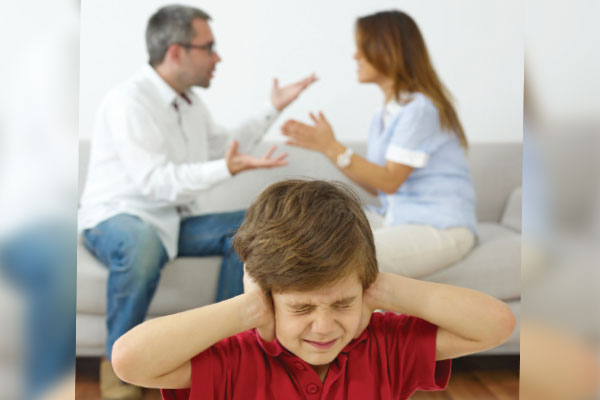Lamar Kanafani, the island’s first, and so far only, licensed marriage and family therapist, writes for WTM on the issues that concern mums.
How to deal with bullying when your child is the bully.
The way I see it, it’s never easy to discover that your child is being bullied. I believe it’s just as difficult to be told that your child is the one doing the bullying. In last month’s article, I wrote about things you can do as a parent to help your child if they are facing a bully. Here we’ll be talking about what you can do should you receive complaints that your child IS the bully.
There are many possible reasons why children bully. Sometimes bullying is cultural in a society where power, competitiveness, winning and violence are noticed and encouraged. Sometimes bullying occurs institutionally where there is not a high standard of behaviour and where superiors mistreat subordinates, for instance. It can also be a method of communicating feelings of internal anger, stress, trauma, insecurity, frustration, fear, jealousy, envy, embarrassment, loneliness or even sadness by people with poor communication skills and poor personal coping mechanisms.
Most commonly and most importantly, chances are that bullies behave the way they do because of an unstable, conflictual or dysfunctional home environment, whether mild or severe in nature. For example, growing up in a home where one or both parents are physically or emotionally neglectful, unavailable or unsympathetic. Or living in a home where the child witnesses continuous or intense arguments amongst family members. Bullying is a learned behavior and tends to have a trickle effect, where the child adopts those same techniques and applies them to others. Moreover, children who are confused by their parents’ parenting approach also resort to bullying others to communicate their inner turmoil. Many parents struggle to find a balance between being overly strict or overly permissive and that can be confusing to the child. Bullying is a way of acting out.
Whatever the reasons may be, children’s bullying is a reactionary behaviour that communicates “My needs are not being met. I am emotionally overwhelmed about that and this is the only way I know how to behave in order to get my needs met.” And this is a very important point to consider when we attempt to help a bully change their behaviour. It certainly doesn’t happen through putdowns, punishment, shaming or instilling guilt in the child. This would only make it worse. Some parents are convinced that these methods ‘work’. However, most of the time, the child has been silenced to submission, still harbouring all sorts of unresolved emotions, and will recommunicate the underlying issues in other ways. Consequently, bullies are probably more in need of love, attention, understanding, empathy and acceptance by the people they love the most.
So in order to begin to help your child stop the bullying behavior, the first thing parents needs to do is admit to themselves that their child is having a problem and also that they themselves play a role in maintaining their child’s behavior. Taking a stance of denial won’t help anyone involved. One very important parenting skill to apply here is listening with empathy and acceptance: taking the time to understand what’s going on in your child’s thought processes and feelings and letting them know that they are entitled to those feelings, whether you agree with them or not.
Their bullying behaviour towards other kids may not be related at all to their targeted victims; rather, it could be a product of issues going on at home, at school or any other setting or people they are regularly exposed to (or even deprived of). Children have many needs: for stability, predictability, structure, respect, consideration, parental time, privacy, peace, attention, understanding, autonomy, connection, trust, inclusion, safety, laughter, support, guidance… the list goes on. Our children will socialise more effectively and excel academically and personally if we make sure to get those needs met.
If you feel you need professional intervention to help you through that, then seek it. Work closely with the school to decide together on an appropriate course of action to get those needs met in their school setting with an end goal in mind of eliminating the bullying behavior and replacing it with other forms of communicating and socialising.
For further questions or support, email [email protected] or call 36 009-665.





































